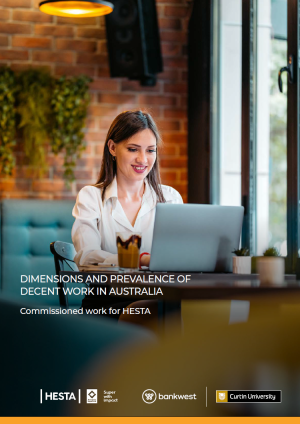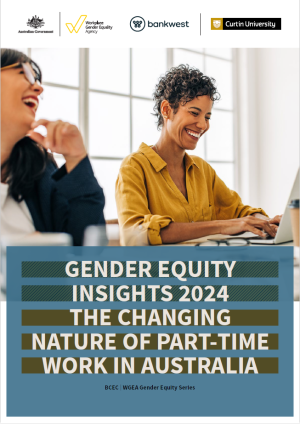Publications
Search results for
Author: Astghik MavisakalyanX
Individualism and the legal status of prostitution
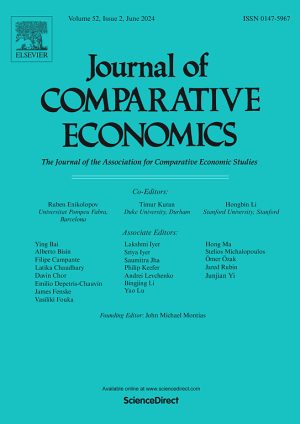 We know very little about why the legal status of prostitution varies across countries. Drawing on central arguments in the normative literature on the legal status of prostitution, in which a central argument concerns the sexual and bodily autonomy of... Read article
We know very little about why the legal status of prostitution varies across countries. Drawing on central arguments in the normative literature on the legal status of prostitution, in which a central argument concerns the sexual and bodily autonomy of... Read article
 We know very little about why the legal status of prostitution varies across countries. Drawing on central arguments in the normative literature on the legal status of prostitution, in which a central argument concerns the sexual and bodily autonomy of... Read article
We know very little about why the legal status of prostitution varies across countries. Drawing on central arguments in the normative literature on the legal status of prostitution, in which a central argument concerns the sexual and bodily autonomy of... Read article
Natural disasters and acceptance of intimate partner violence: The global evidence
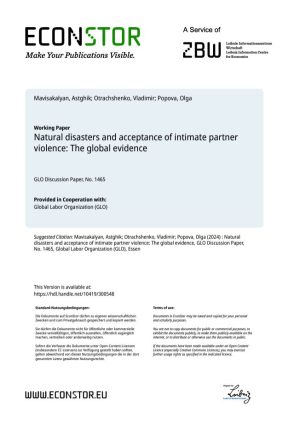 This paper examines the dynamic impact of natural disasters on the individual acceptance of a physical form of intimate partner violence (IPV). Based on a global sample of individual survey data and historical geo-referenced records of natural disasters at a... Read article
This paper examines the dynamic impact of natural disasters on the individual acceptance of a physical form of intimate partner violence (IPV). Based on a global sample of individual survey data and historical geo-referenced records of natural disasters at a... Read article
 This paper examines the dynamic impact of natural disasters on the individual acceptance of a physical form of intimate partner violence (IPV). Based on a global sample of individual survey data and historical geo-referenced records of natural disasters at a... Read article
This paper examines the dynamic impact of natural disasters on the individual acceptance of a physical form of intimate partner violence (IPV). Based on a global sample of individual survey data and historical geo-referenced records of natural disasters at a... Read article
Gender gaps in the adoption of climate-smart agricultural practices: Evidence from sub-Saharan Africa
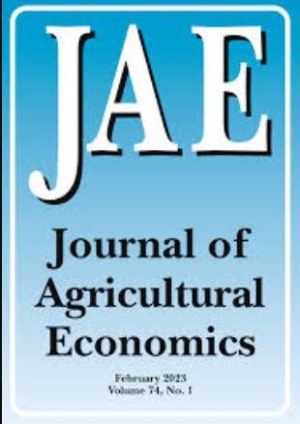 In this paper we examine whether there are significant gender differences in the adoption of climate-smart agricultural (CSA) practices in sub-Saharan Africa. Using individual-level data from four sites in Kenya, Uganda and Senegal, our empirical analysis provides robust evidence that... Read article
In this paper we examine whether there are significant gender differences in the adoption of climate-smart agricultural (CSA) practices in sub-Saharan Africa. Using individual-level data from four sites in Kenya, Uganda and Senegal, our empirical analysis provides robust evidence that... Read article
 In this paper we examine whether there are significant gender differences in the adoption of climate-smart agricultural (CSA) practices in sub-Saharan Africa. Using individual-level data from four sites in Kenya, Uganda and Senegal, our empirical analysis provides robust evidence that... Read article
In this paper we examine whether there are significant gender differences in the adoption of climate-smart agricultural (CSA) practices in sub-Saharan Africa. Using individual-level data from four sites in Kenya, Uganda and Senegal, our empirical analysis provides robust evidence that... Read article
Intimate partner abuse and child health
 Despite the harmful effects of intimate partner abuse (IPA) on child health, survivors with children often continue in abusive relationships. It is often, they claim, to ensure a better future for their children. We explore the puzzle and this potential... Read article
Despite the harmful effects of intimate partner abuse (IPA) on child health, survivors with children often continue in abusive relationships. It is often, they claim, to ensure a better future for their children. We explore the puzzle and this potential... Read article
 Despite the harmful effects of intimate partner abuse (IPA) on child health, survivors with children often continue in abusive relationships. It is often, they claim, to ensure a better future for their children. We explore the puzzle and this potential... Read article
Despite the harmful effects of intimate partner abuse (IPA) on child health, survivors with children often continue in abusive relationships. It is often, they claim, to ensure a better future for their children. We explore the puzzle and this potential... Read article
Pro-environmental behaviour and subjective well-being: Culture has a role to play
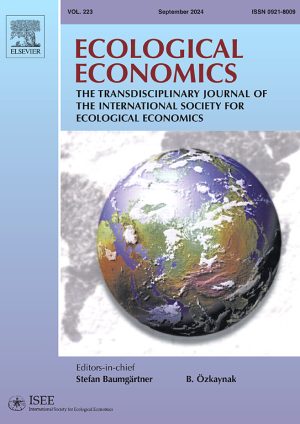 This paper explores the relationship between pro-environmental behaviors (PEBs) and subjective well-being (SBW) through the lens of cultural values. Using data from a global sample of individuals from the World Value Surveys, we show that there is a strong positive... Read article
This paper explores the relationship between pro-environmental behaviors (PEBs) and subjective well-being (SBW) through the lens of cultural values. Using data from a global sample of individuals from the World Value Surveys, we show that there is a strong positive... Read article
 This paper explores the relationship between pro-environmental behaviors (PEBs) and subjective well-being (SBW) through the lens of cultural values. Using data from a global sample of individuals from the World Value Surveys, we show that there is a strong positive... Read article
This paper explores the relationship between pro-environmental behaviors (PEBs) and subjective well-being (SBW) through the lens of cultural values. Using data from a global sample of individuals from the World Value Surveys, we show that there is a strong positive... Read article
Trust a few: natural disasters and the formation of trust in Africa
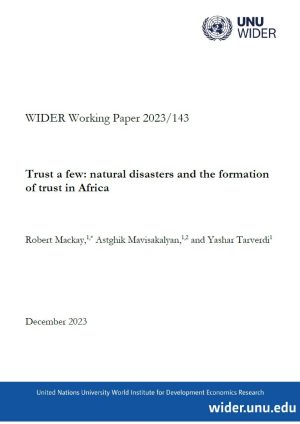 Individuals are at their most mental plasticity in their impressionable years (ages 18–25 years) forming long-term attitudes and behaviours essential to functioning in a society, such as trust. In this paper we ask how exposure to natural disasters within the... Read article
Individuals are at their most mental plasticity in their impressionable years (ages 18–25 years) forming long-term attitudes and behaviours essential to functioning in a society, such as trust. In this paper we ask how exposure to natural disasters within the... Read article
 Individuals are at their most mental plasticity in their impressionable years (ages 18–25 years) forming long-term attitudes and behaviours essential to functioning in a society, such as trust. In this paper we ask how exposure to natural disasters within the... Read article
Individuals are at their most mental plasticity in their impressionable years (ages 18–25 years) forming long-term attitudes and behaviours essential to functioning in a society, such as trust. In this paper we ask how exposure to natural disasters within the... Read article
Gender Equity Insights 2023: Accelerating the pace of change
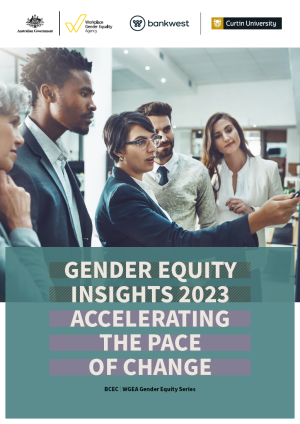 The eighth report in the Gender Equity Insights series from the Bankwest Curtin Economics Centre (BCEC) and the Workplace Gender Equality Agency (WGEA) looks at the gender equality strategies at nearly 4,800 Australian employers to determine what factors are accelerating... Read article
The eighth report in the Gender Equity Insights series from the Bankwest Curtin Economics Centre (BCEC) and the Workplace Gender Equality Agency (WGEA) looks at the gender equality strategies at nearly 4,800 Australian employers to determine what factors are accelerating... Read article
 The eighth report in the Gender Equity Insights series from the Bankwest Curtin Economics Centre (BCEC) and the Workplace Gender Equality Agency (WGEA) looks at the gender equality strategies at nearly 4,800 Australian employers to determine what factors are accelerating... Read article
The eighth report in the Gender Equity Insights series from the Bankwest Curtin Economics Centre (BCEC) and the Workplace Gender Equality Agency (WGEA) looks at the gender equality strategies at nearly 4,800 Australian employers to determine what factors are accelerating... Read article
Executive Summary: Gender Equity Insights 2023: Accelerating the pace of change
 The BCEC|WGEA Gender Equity Insights 2023 Executive Summary is a printable summary of the key findings and infographics from this year’s report, Gender Equity Insights 2023: Accelerating the pace of change, which looks at the gender equality strategies at nearly... Read article
The BCEC|WGEA Gender Equity Insights 2023 Executive Summary is a printable summary of the key findings and infographics from this year’s report, Gender Equity Insights 2023: Accelerating the pace of change, which looks at the gender equality strategies at nearly... Read article
 The BCEC|WGEA Gender Equity Insights 2023 Executive Summary is a printable summary of the key findings and infographics from this year’s report, Gender Equity Insights 2023: Accelerating the pace of change, which looks at the gender equality strategies at nearly... Read article
The BCEC|WGEA Gender Equity Insights 2023 Executive Summary is a printable summary of the key findings and infographics from this year’s report, Gender Equity Insights 2023: Accelerating the pace of change, which looks at the gender equality strategies at nearly... Read article
Climate Change and Gender Equality
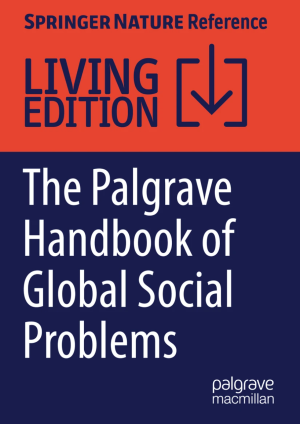 Climate change is having a significant negative impact on the lives of individuals around the globe. But this impact is not distributed equally. A growing body of research suggests that women are more vulnerable to the negative impacts of climate... Read article
Climate change is having a significant negative impact on the lives of individuals around the globe. But this impact is not distributed equally. A growing body of research suggests that women are more vulnerable to the negative impacts of climate... Read article
 Climate change is having a significant negative impact on the lives of individuals around the globe. But this impact is not distributed equally. A growing body of research suggests that women are more vulnerable to the negative impacts of climate... Read article
Climate change is having a significant negative impact on the lives of individuals around the globe. But this impact is not distributed equally. A growing body of research suggests that women are more vulnerable to the negative impacts of climate... Read article
Identity and support for policies towards Indigenous people: evidence from Australia
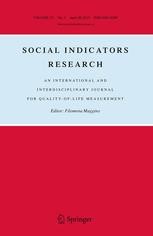 This paper adds to knowledge on the role of politicians’ and voters’ identities in influencing policy-making in societies marked by ethnic inequality. The outcome we investigate is the initiatives and policies targeting Indigenous populations in the context of Australia. We... Read article
This paper adds to knowledge on the role of politicians’ and voters’ identities in influencing policy-making in societies marked by ethnic inequality. The outcome we investigate is the initiatives and policies targeting Indigenous populations in the context of Australia. We... Read article
 This paper adds to knowledge on the role of politicians’ and voters’ identities in influencing policy-making in societies marked by ethnic inequality. The outcome we investigate is the initiatives and policies targeting Indigenous populations in the context of Australia. We... Read article
This paper adds to knowledge on the role of politicians’ and voters’ identities in influencing policy-making in societies marked by ethnic inequality. The outcome we investigate is the initiatives and policies targeting Indigenous populations in the context of Australia. We... Read article
Does democracy protect the environment? The role of the Arctic Council
 This paper examines the influence of democratic institutions on environmental policy stringency and the degree to which it is affected by membership in the Arctic Council. We hypothesize that, relative to countries with no Arctic presence, countries present in the... Read article
This paper examines the influence of democratic institutions on environmental policy stringency and the degree to which it is affected by membership in the Arctic Council. We hypothesize that, relative to countries with no Arctic presence, countries present in the... Read article
 This paper examines the influence of democratic institutions on environmental policy stringency and the degree to which it is affected by membership in the Arctic Council. We hypothesize that, relative to countries with no Arctic presence, countries present in the... Read article
This paper examines the influence of democratic institutions on environmental policy stringency and the degree to which it is affected by membership in the Arctic Council. We hypothesize that, relative to countries with no Arctic presence, countries present in the... Read article
BCEC Monthly Labour Market Update – February 2023
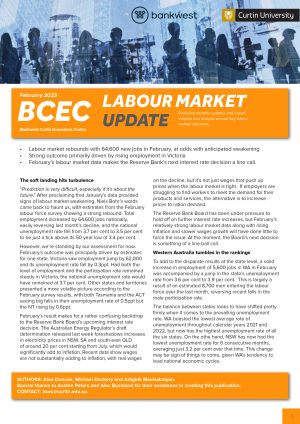 Labour market rebounds with 64,600 new jobs in February, at odds with anticipated weakening. Strong outcome primarily driven by rising employment in Victoria. February’s labour market data makes the Reserve Bank’s next interest rate decision a line call. The soft... Read article
Labour market rebounds with 64,600 new jobs in February, at odds with anticipated weakening. Strong outcome primarily driven by rising employment in Victoria. February’s labour market data makes the Reserve Bank’s next interest rate decision a line call. The soft... Read article
 Labour market rebounds with 64,600 new jobs in February, at odds with anticipated weakening. Strong outcome primarily driven by rising employment in Victoria. February’s labour market data makes the Reserve Bank’s next interest rate decision a line call. The soft... Read article
Labour market rebounds with 64,600 new jobs in February, at odds with anticipated weakening. Strong outcome primarily driven by rising employment in Victoria. February’s labour market data makes the Reserve Bank’s next interest rate decision a line call. The soft... Read article


